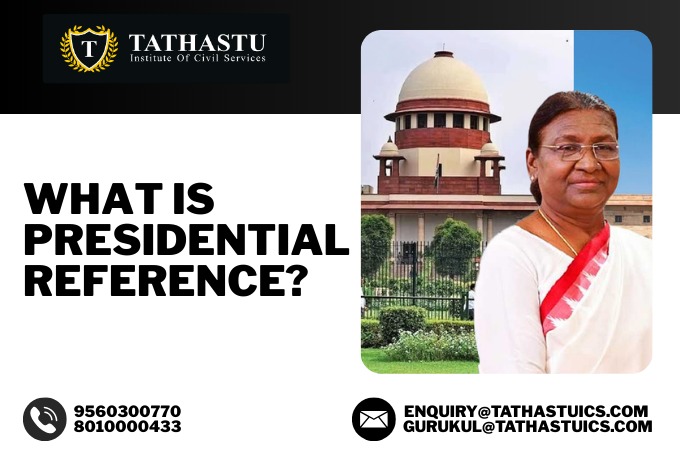What is a Presidential Reference?
- Recently, President Droupadi Murmu asked the Supreme Court to weigh in on some important legal questions.
- This kind of request is called a “Presidential reference,” and it’s made under Article 143 of the Indian Constitution.
- It is when the President — usually on the government’s advice — asks the Court to give its opinion on legal matters that affect the whole country.
Origin of Presidential Reference
- This system dates back to British times, to the Government of India Act, 1935.
- Under this Act, the Governor-General had the power to seek advice from the top court on important legal questions.
- Countries like Canada still have similar setups where their highest court can advise the government.
- But the U.S. has a different setup—its Supreme Court stays out of giving “advice” because of the strict separation of powers.
Presidential Reference in India
- When the President makes a reference, the Supreme Court decides on the matter with at least five judges.
- The Supreme Court’s answer is only an opinion, not something the President or the government must follow. In other words, the advice is not binding on the President of India.
- Still, these opinions usually carry much weight and help guide future decisions.
- The Court also isn’t forced to answer every question, i.e. the Supreme Court has declined to offer the advice once before, in Ram Janmabhoomi Case, 1993.
Previous Cases of Presidential References
Since 1950, there have been around fifteen such references. These helped clarify big issues — like how laws can be delegated, balancing fundamental rights with state policies, or how changes to India’s borders must be handled.
Current Presidential Reference
- The Presidential Reference comes after the Supreme Court gave a ruling on how Governors and the President should handle bills passed by state legislatures esp in the case of Tamil Nadu State.
- The government wants the Supreme Court to clarify the limits of these powers, especially around the timelines involved and whether courts should review these decisions before a bill becomes law.
- This matters a lot because of ongoing political tensions between the Central Government (Governors are appointed by the Central Government) and some states, i.e. Kerala, Punjab, West Bengal and more.
The Supreme Court’s opinion plays a crucial role in keeping India’s democracy and federal system working smoothly. It helps settle tricky questions so everyone knows the rules of the game. So, even though it’s not legally binding, people pay close attention to what the Supreme Court says which will decide the future course of action.

